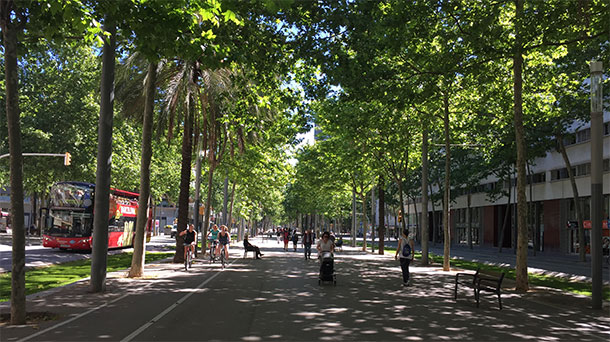- Home
- / What we do and why
- / Energy and climate change
- / Adaptation
Adaptation
Barcelona City Council, the Catalan Meteorological Service and Barcelona Regional have carried out various studies in order to find out how Barcelona will be affected by climate change.
More specifically, they have analysed how the city will be affected in certain areas:
Analysis of vulnerabilities
-
Floods
-
Air quality
-
Heat waves
Three periods of time have been analysed (2011-2040, 2041-2070 and 2071-2100) concerning two main scenarios: the first shows how the temperature would increase if the Paris Agreement measures to counter climate change were adopted now. This would be defined as a "committed" scenario. The other scenario shows how the temperature could increase if, over the next few years, none of the measures for mitigating climate change are adopted, which would be the "passive" scenario.
The results of this study show that there are major differences between acting and not acting.
In a “committed” scenario, the city's temperature would increase by 1.7º C, while in a “passive” one, it would increase by up to 3º C. The study also analyses the increase in "tropical" and "torrid" nights in the city in coming years, along with a possible increase in heat waves.
The study also shows that climate change will not affect everyone equally, and that there may be differences according to city neighbourhood, especially in those areas with a more vulnerable population or with fewer green areas.
Consult the Executive Summary of the Heat Wave Study (in catalan).
-
Heat-island effect
-
Biodiversity
-
Fires
-
Guaranteeing supplies (water and energy)
-
City infrastructures
None of these expected impacts are new to Barcelona, although climate change will increase the risks. There are emergency plans for heat waves and drought, water is being saved, alternative hydrological resources are being used, more trees are being planted in the city and the number of green areas are being increased to provide more shade and cooler temperatures. And work is still being done to review resilience and adaptation plans.

